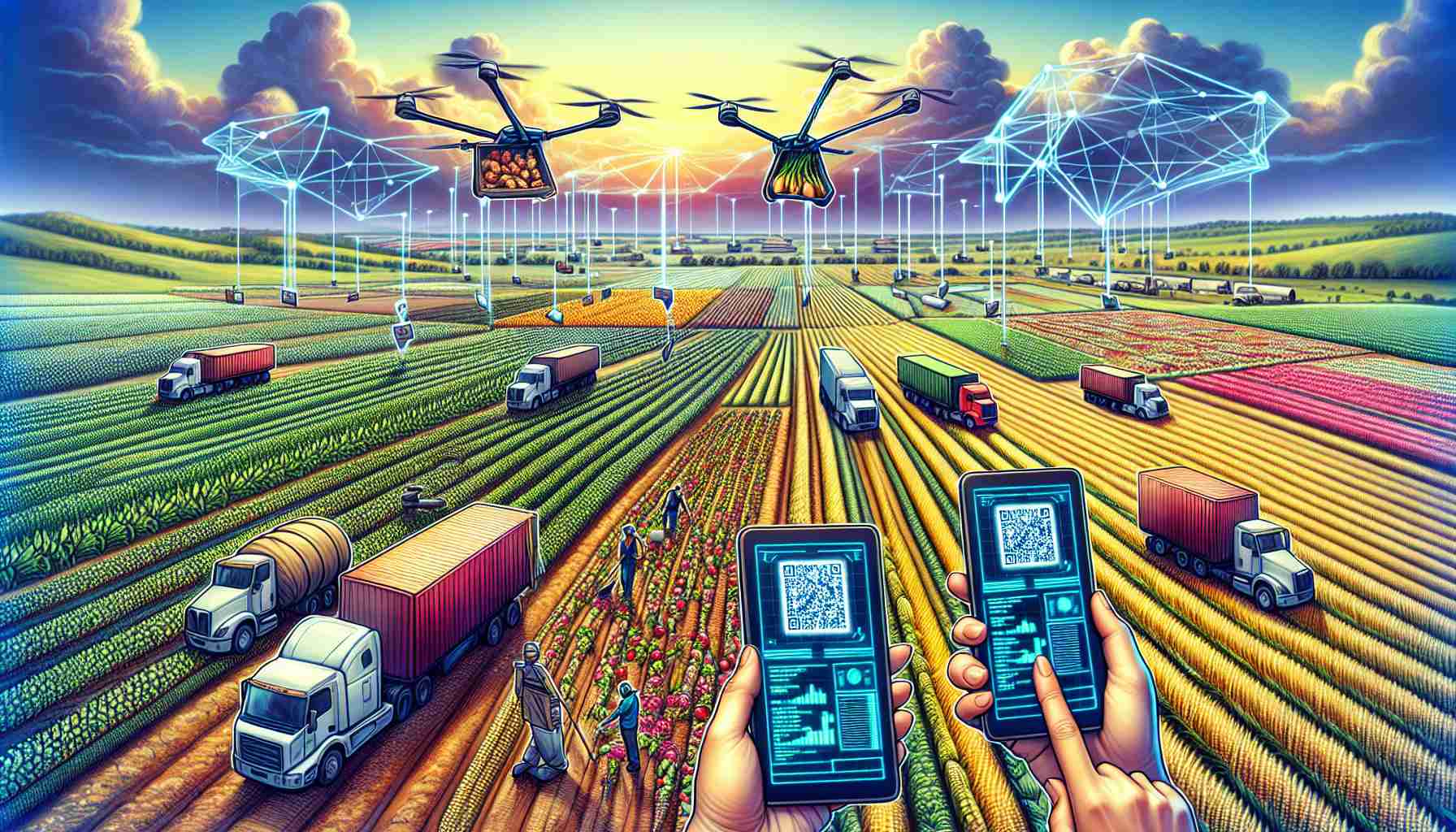Major Agriculture Players Embrace Blockchain for Supply Transparency
In a landmark initiative, Bunge Global, an agribusiness leader, has joined hands with Bangkok Produce, an affiliate of the renowned Thai food conglomerate Charoen Pokphand Foods (CPF), to pioneer a blockchain-based tracking system for soybean shipments. This trailblazing project has so far encompassed three shipments originating from Brazil and totaling 185,000 tonnes of soybean meal, all destined for Thailand, with an impeccable record of no deforestation since 2020.
This strategic partnership not only adheres to rigorous socio-environmental standards but also provides consumers with comprehensive insights into the lifecycle of the soybeans – beginning with their cultivation on farms and culminating with their eventual arrival in Thailand. Bunge eagerly disseminated the details on 11 June.
The system’s robustness is attributed to its ability to store information on the carbon emissions entailed in the delivery process and the adoption of sustainable agricultural practices by the suppliers. Paisarn Kruawongvanich, CEO of Bangkok Produce, expressed his company’s dedication to meshing the supply chain with blockchain for unparalleled transparency.
The efforts of CPF and Bunge, united since October 2023, aim to materialize deforestation-free supply chains by 2025. This ambition aligns with the recent successful dispatch of soybean meal that is fully transparent, from its inception on farms to the end destination, serving as a groundwork for a sustainable and digitally-integrated supply web.
Their ongoing collaboration promises to further intertwine their supplier management, enabling real-time, trustworthy traceability and socio-environmental data sharing powered by blockchain, signaling a groundbreaking shift toward sustainability in the global agribusiness sphere.
Blockchain Technology’s Role in Revolutionizing Agricultural Supply Chains
Blockchain technology is rapidly emerging as a game-changer in transforming agricultural supply chains. The partnership between Bunge Global and Bangkok Produce, leveraging blockchain to track soybean shipments, is a prime example of this digital transformation. Implementing blockchain in agriculture supply chains presents many advantages. Information stored on a blockchain is immutable and transparent, meaning once data is recorded, it cannot be altered. This encourages accountability at every stage of the supply chain.
An important question to address is: How does blockchain technology enhance traceability in agriculture supply chains? Blockchain’s distributed ledger allows participants to access data regarding product origin, quality, and movement, thus enabling better traceability of goods from farm to consumer. Traceability is crucial in ensuring food safety and increasing consumer trust.
Another key question is: What are the major challenges associated with implementing blockchain in the agricultural supply chain? Some of the main challenges include the integration of blockchain with existing systems, scalability, the need for standardization across various stakeholders, and high initial implementation costs. Furthermore, there is a requirement for digital infrastructures, especially in developing countries, to implement the technology effectively.
Advantages of Blockchain in Agricultural Supply Chains:
– Enhanced Transparency: Consumers have detailed information about the production and journey of their food.
– Increased Efficiency: Reduces paperwork and streamlines operations by digitizing the supply chain.
– Improved Food Safety: Quick access to data can help in rapidly addressing contamination issues.
– Better Compliance: Easier to ensure that suppliers are adhering to environmental and social standards.
Disadvantages and Controversies:
– High Costs: Significant initial investment is needed to set up the necessary infrastructure.
– Complexity: It can be complex to integrate with existing supply chain processes.
– Data Privacy Concerns: There are concerns around sensitive data being shared across an open network.
– Resistance to Change: Participants in the supply chain may be reluctant to adopt new technologies due to comfort with established processes.
Controversially, while blockchain can potentially prevent deforestation by encouraging responsible sourcing, it is not a panacea. There is still skepticism about whether blockchain alone can eliminate unethical practices in the supply chain, or whether regulatory and incentive frameworks are also necessary.
For those interested in learning more about how blockchain technology is transforming different sectors like agriculture, you can visit reputable websites such as IBM Blockchain or World Wildlife Fund (WWF) which is known for its efforts in promoting sustainable agricultural practices. It should be noted that links to specific organizations’ blockchain projects were not included to adhere to the guidelines provided.



